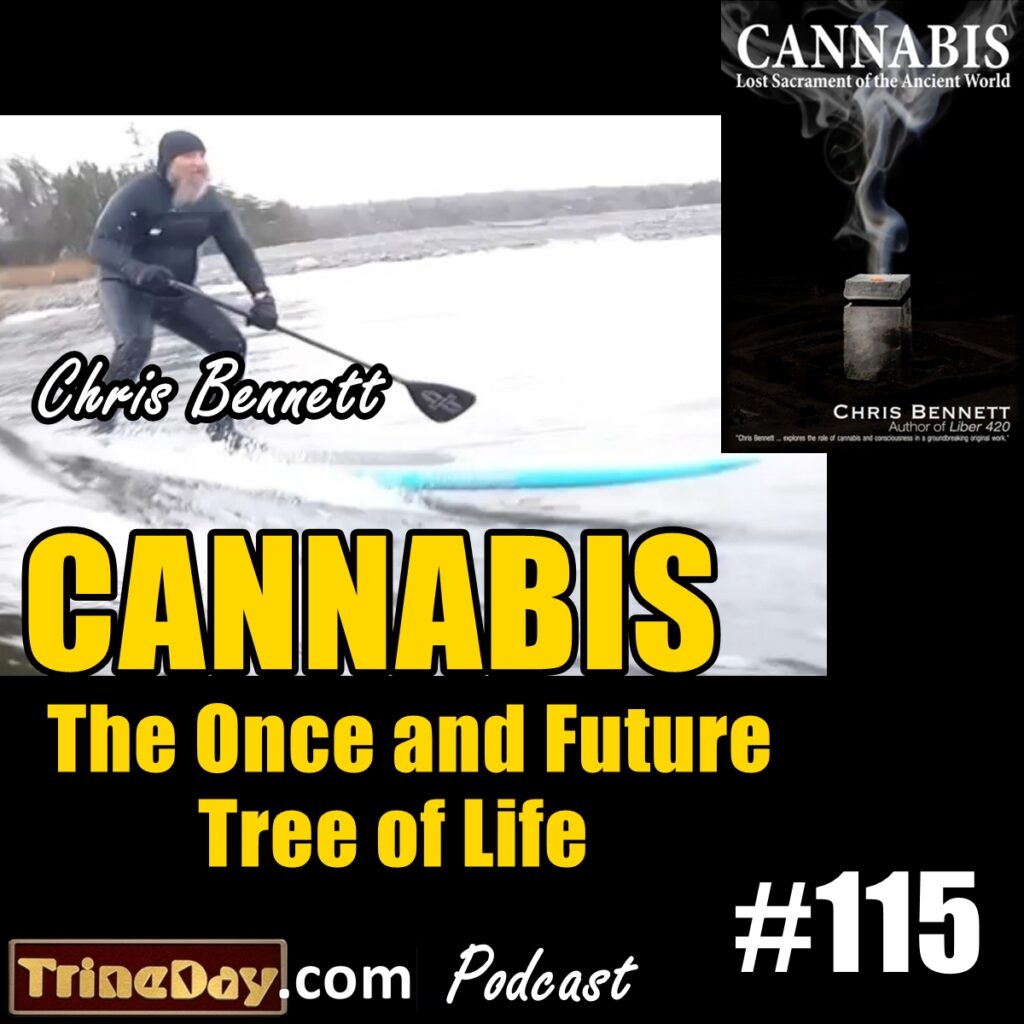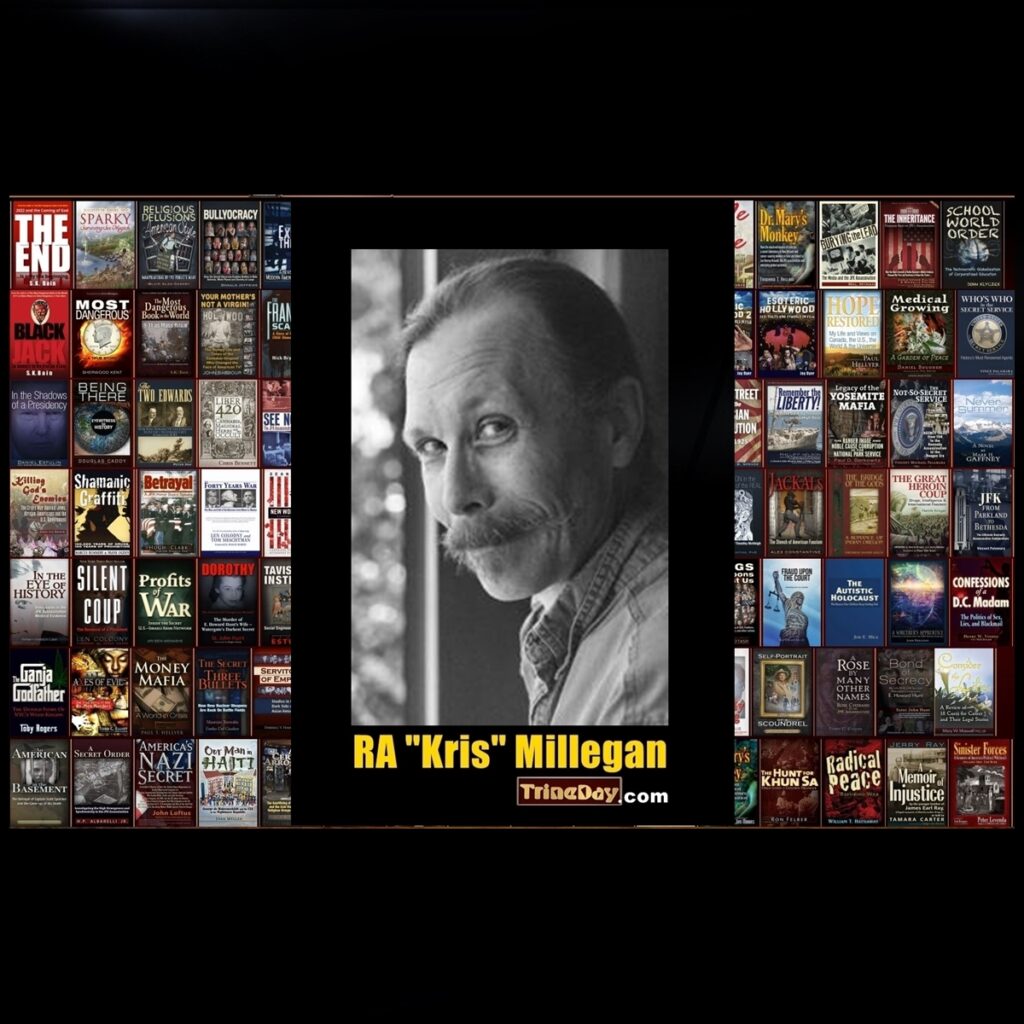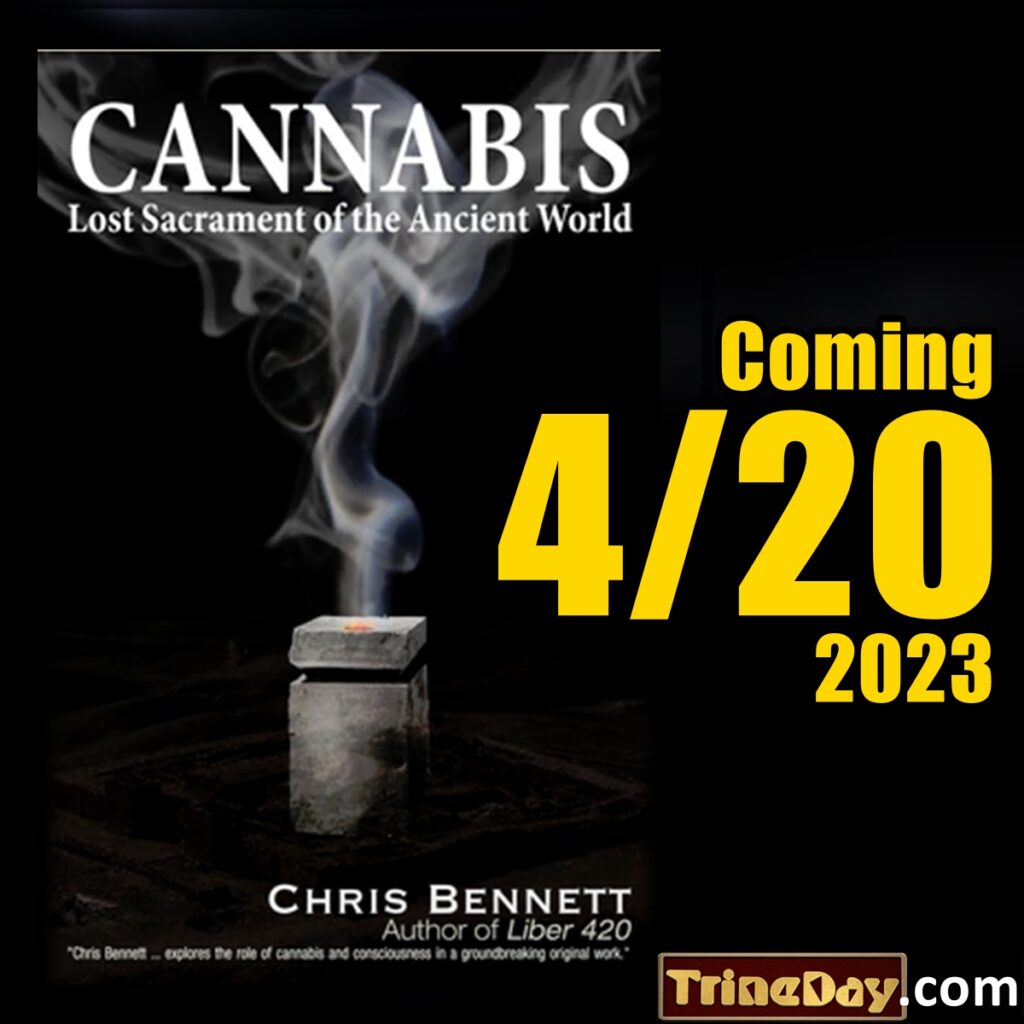The Journey 115. Chris Bennett: Cannabis, The Once and Future Tree of Life
Publisher Kris Millegan speaks with Chris Bennett, an expert in the use of ethnobotanicals and one of the foremost authorities on the history of cannabis, about the religious, spiritual, and industrial use of cannabis, and his next book, coming on 4/20, 2023: CANNABIS: LOST SACRAMENT OF THE ANCIENT WORLD.

Kris: You’ve been at this scholarship for a while. Now the research on it has just gone into overdrive.
Chris: Now it’s in the headlines all the time for things like medical use and industrial use. And lots of historical information turning up as well, some archeological digs confirming things that I wrote.
Kris: In the late ‘60s I was telling people that the laws against it are more harmful than the drug itself. It’s really nice to see that it has become quasi-legal. It’s not quite like growing a tomato plant in your backyard, but it has become legal, which I think is very good. Somebody that’s looking for marijuana [no longer has to] go to a dealer who’s got all kinds of other stuff in his bag.

Chris: And there’s the whole industrial aspect of cannabis that’s been suppressed as well. Some people believe it could replace fossil fuels. Certainly as a paper product it could replace our forests as a resource for paper and replace soil-depleting cotton and so many other things.
We can go to a greener future with greener technologies. They’re saying that you can make batteries out of hemp that really, really have excellent efficiency. And on the social level we don’t have to spend all this money imprisoning people for this wonderful plant.
I think its prohibition has its origin in some Christians’ concepts of “the Devil’s weed” and more ancient ideas about it that re-emerged once we rediscovered cannabis. The innate fear of the Judeo-Christian religions against entheogens [“god created within,” a substance taken with the intention of producing a spiritual experience, something used within a ritual] is really at play here as well. On the religious front, cannabis has provided a revelation.
Kris: It’s been part of my posit that they called it a gateway drug as part of their operation to pull us into other drugs. Like my father told me in 1967, “They’re out to opiate your whole generation.”
Chris: There are a lot of parallels between the right wing governments of today and what happened in ancient Israel with the rise of monotheism, taking one deity out of a pantheon of deities and getting rid of [the rest] and bringing in all these stringent reforms that were anti-homosexual, women [became] second-class citizens, and against ecstatic rites that involved cannabis and likely other entheogens as well.
The Garden of Eden itself was really created as prohibition against the pre-existing religion that was around before Yahweh and monotheism, which really isn’t that old. It doesn’t really become fully entrenched until probably about the 4th or 5th Century BC, after the Greeks, after they’ve been returned from the Persians.
This is indicated in the books of Kings and Chronicles. There are really one two monotheistic kings in those books, Josiah and Hezekiah. And they weren’t saying, “There’s only one god.” They were saying, “There’s only one god that we worship.”
It was almost as much a political move as a religious one. This starts when they’re being attacked by Syria and they need to consolidate the kingdom. It’s kind of hard, it’s like herding cats, when you have all these different cults worshipping all these different deities. Monotheism was a means of consolidating where all the offerings went and who you listen to. And cannabis suppression has a lot to do with that event.
Kris: I find it amazing, thinking that, “Women just got the right to vote about a hundred years ago.” How did they justify keeping so many people down?
Chris: I would say the Eden myth is probably the most potent of human history in the way that it acts as a template for our culture and society and the role of men and women through the act of Eden, of Eve eating the forbidden fruit, that she is forever punished, will always have to be subject to her husband. It wasn’t that way in the ancient world prior to these monotheistic religions.
Goddess cultures were massive. Women’s role in society was massive. Likewise with homosexuals and transsexuals. These people were considered holy. Sexuality itself was a sacred substance, a sacrament.
Kris: What’s been the most amazing thing that you’ve found?
Chris: I would say it’s something that’s relatively new, this archeological discovery of this temple site in Tel Arad, Jerusalem that contained a miniature version of the Holy of Holies that contained these two altars that were used for burning both frankincense and cannabis. It is also a site that is known for the combined worship of Yahweh and this goddess Asherah that we’ve been talking about.

And besides this discovery of Tel Arad, we have a near-eastern discovery of a goddess temple where they were ritually weaving cannabis. Hezekiah, we know, was going around destroying all evidence of Asherah worship. It’s an innovation that’s taking place, of separating from the past and creating this new “history” of this monotheistic deity.
Kris: Cannabis has been around man a long time. It’s had a long relationship with humankind. We find it in lots of ancient cultures.
Chris: It goes way back in human history. We have evidence of hemp rope going back to about 24,000 years ago. Hemp cloth in both China and Turkey, about 10,000 BC. Both Carl Sagan and Terence McKenna speculated that cannabis is our oldest agricultural crop.
In Hinduism, Shiva worship is still using cannabis. In ancient Taoism, references from China, from 400 and 500 BC, definitely refer to cannabis used in incense burners for mystical purposes. In Buddhism, there are stories of the Buddha going back to at least a few hundred BC, about him subsisting on one hemp seed a day under the Bodhi tree [where Siddhartha Guatama attained enlightenment and became the Buddha], and later in Tibetan Buddhism, it appears in a number of texts for spiritual purposes.
Kris: I was introduced to cannabis as a teenager. I would tell my friends, “This isn’t just about getting stoned. This thing deserves some respect. There’s more going on here.”
Bruce de Torres: How much of the cannabis prohibition in America over the last hundred years or so was intended to influence our health and control quote-unquote official medicine and healthcare?
Chris: I think a lot of it had to do with racist intentions and fear of foreign influences. It was certainly a major medicine before prohibition.
Kris: The medical community was really taken aback by the prohibition.
Chris: A lot of doctors argued against [the prohibition]. I think a lot of it was plain and simple racism. The fact that whites and blacks were starting to hang out together in jazz clubs was a threat to society in their minds.
It’s such a human relationship that we have with this plant. Even our endocannabinoid system that cannabis interacts with so well is probably indication of our co-evolution together. We have a relationship like bees and flowers with this plant, man. It’s the sacred Tree of Life, the once and future Tree of Life.
It’s really like an active hypnotic. When people were taking potent extracts in the 19th Century for medicine, often they didn’t think they were getting high. They were just feeling better because that was what their mind projected on it.
When your mind is full of this magic and religious history of cannabis, the plant once again takes on the cloak of that magic and mystery and you get that, brothers and sisters.









